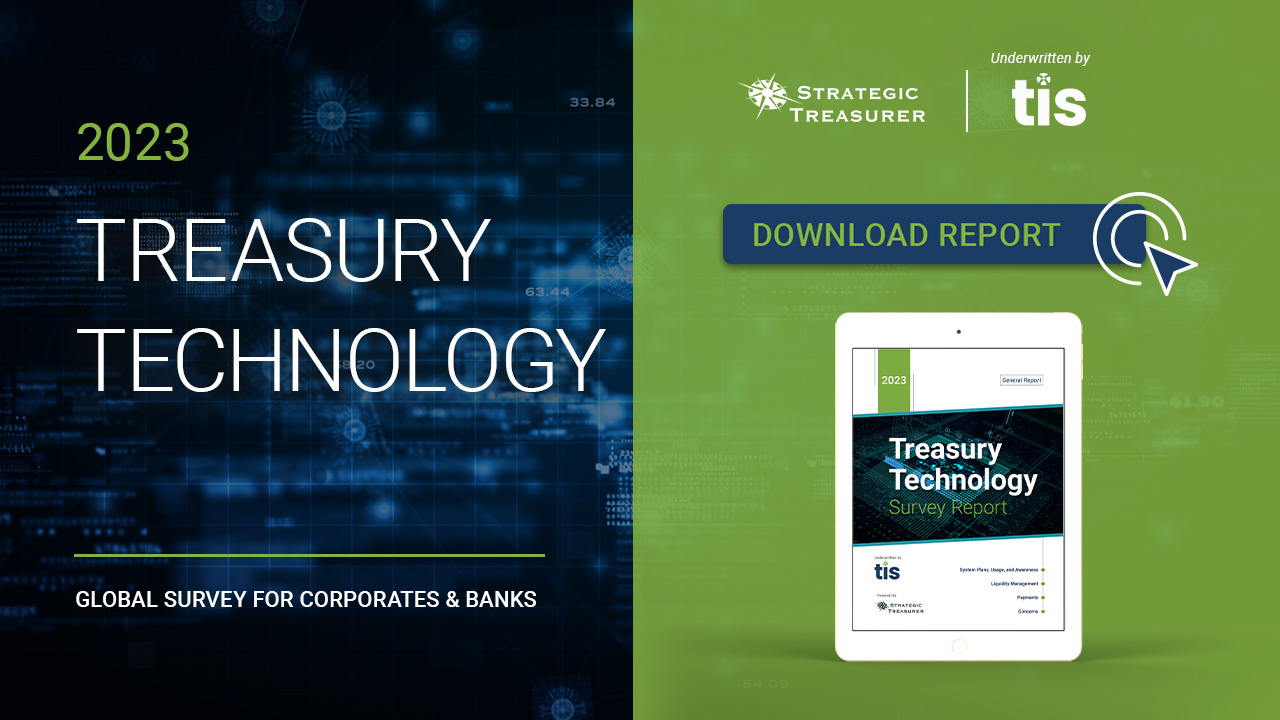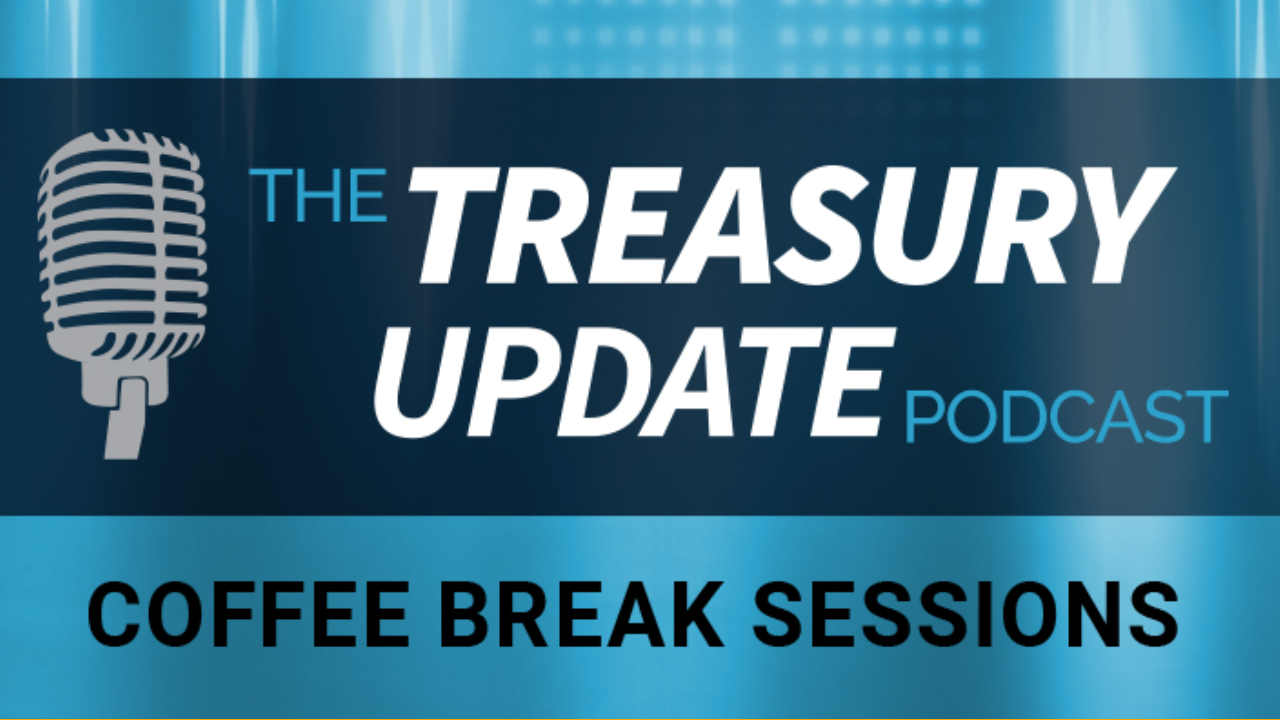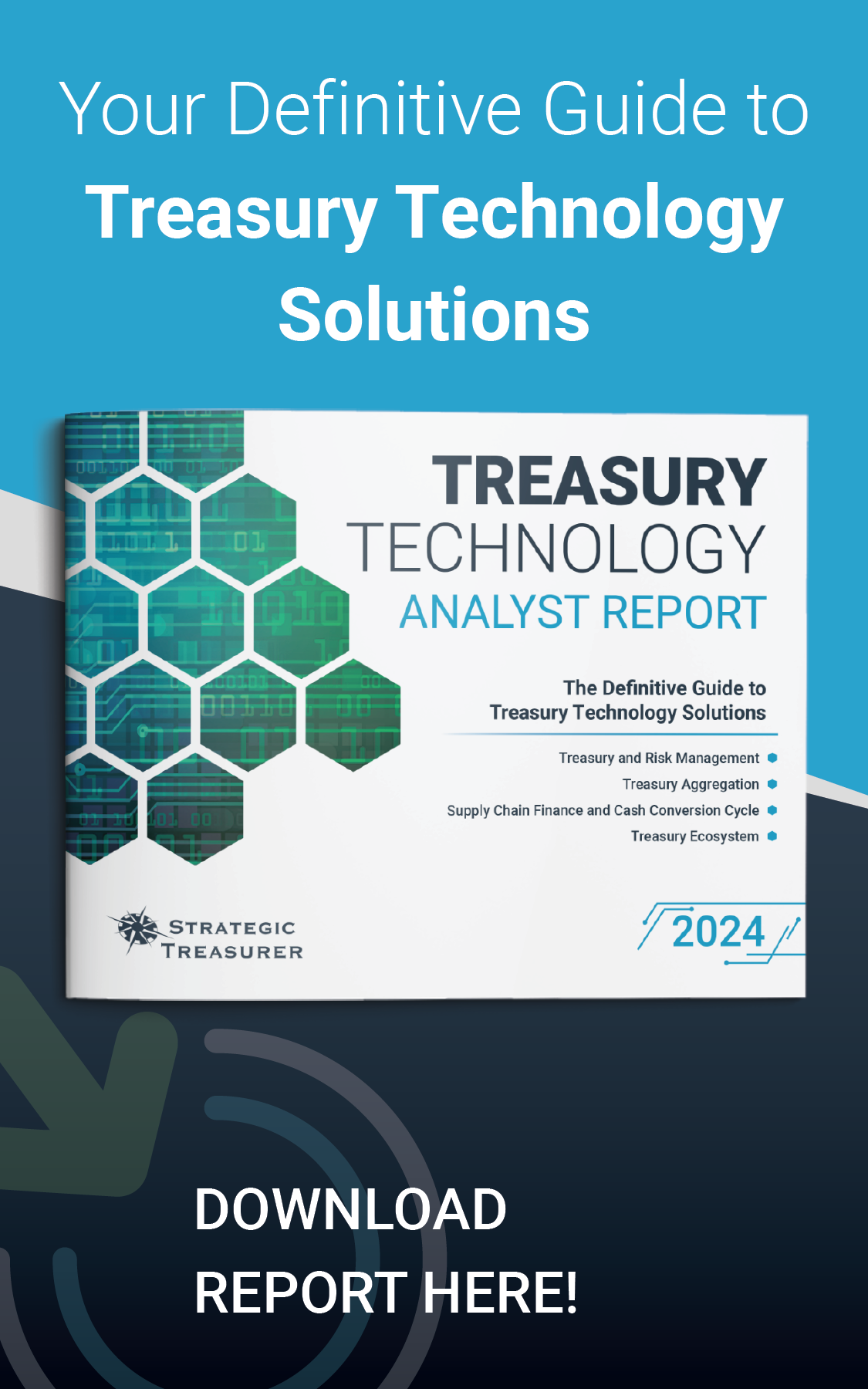
Session 95
What Are CDs?
This week’s coffee break session defines and discusses the certificate of deposit (CD). It covers durations, restrictions, and strategies, as well as other common questions. Listen in as Craig Jeffery walks us through the world of CDs.
Host:
Jonathan Jeffery, Strategic Treasurer


Speaker:
Craig Jeffery, Strategic Treasurer


Episode Transcription - (Coffee Break Session Series) - Episode 95 - What are CDs?
Jonathan Jeffery 00:02
Welcome to the Treasury Update Podcast Coffee Break Sessions presented by Strategic Treasurer, the show where we cover foundational topics and core treasury issues in about the same amount of time it takes you to drink your cup of coffee. I’ll be your host, Jonathan, media production specialist here at Strategic Treasurer. So sit back, relax and enjoy the show. I’m here with Craig Jeffery to talk about what our CDs. Welcome to the show, Craig.
Craig Jeffery 00:32
Thanks, John. I am glad to be here doing another podcast on the coffee break series. It’s been a while Jon.
Jonathan Jeffery 00:37
Yeah, it’s good to have you back. So let’s get into it. What are CDs?
Craig Jeffery 00:41
CDs, that stands for certificate of deposit. These are savings accounts held at banks that provide interest at a lump sum basis after a time certain periods. So based on a specific date, they’ll provide interest on them. So it’s a savings account a way to earn interest, usually higher interest rate than a regular bank account. Gotcha. And I’ve heard about this for personal use. But does corporate treasury use CDs, there certainly are corporations who use CDs to increase their yields. It’s not extremely common. But it’s certainly used by companies. Sometimes it’s used to put money into institutions that meet certain criteria. Other times, it’s just when there’s certain economic conditions and rates where they can earn a higher yield, they put some some money away and CDs to ladder and stagger that it’s not typically used by the the billion dollar plus organizations, it’s used by smaller organizations as a way of increasing yield and maintaining safety of principle.
Jonathan Jeffery 01:47
So tell me a little bit about the timeframe. What’s the typical duration for a CD term?
Craig Jeffery 01:54
Most of them you’ll see three months to a year, there’s certainly CDs that are out five years, even 10 years, maybe there’s CDs that are longer than that, I’m not really familiar with ones that go beyond 10 years, but the certificate deposit deposits, you know, have a have a lifetime, and banks will offer them to help fill in their asset liability match, you know, providing and make sure they have stable funds that are far less likely to move because there’s penalties for withdrawing them. I know, individuals oftentimes, you know, will buy them out 234 or five years, companies tend to ladder to them, or, you know, nonprofit institutions tend to buy these in shorter durations, you know, oftentimes within two years, sometimes three months, or there’s even one month CDs.
Jonathan Jeffery 02:42
Okay. And the main goal is to get interest on the money you’re putting in.
Craig Jeffery 02:47
Yeah, so instead of having the variability of saying rates are going up or down, especially if you don’t need the money for a period of time, and you want to lock in a particular rate. And this is particularly useful in situations where you have some liability coming due, you have the cash for it, and so you lock in a rate that matches and so you don’t bear the risk of of rates declining. You don’t realize the benefits of rates go up, either. But that is certainly why people do that.
Jonathan Jeffery 03:13
Okay, so that’s the kind of how it compares to a normal savings account.
Craig Jeffery 03:18
Yeah, they tend to be much more competitive rates, like if you go into, they’re extremely common in the US, if you go into your bank, if you walk in or if you go to the website, they’ll offer CD rates, and so they tend to be quite a bit higher than their money market fund rates. And certainly their savings rate savings rates tend to be very, very, very low. And so this is a vehicle that provides a higher higher level, because they no people are looking to invest it. And so they’re not going to be happy with two basis points or five basis points. They’re looking for percentages, you know, hundreds of basis points.
Jonathan Jeffery 03:54
Okay, when you walk into your local bank, they usually say, Do you want to see these CDs rates?
Craig Jeffery 04:01
Yeah, hopefully not. I don’t walk into the bank too often. But that that’s a pretty good pun.
Jonathan Jeffery 04:08
Okay, so can you withdraw your funds at any time? Like, if you have a five year CD? Can you pull it out at two years? If you have an emergency? Or?
Craig Jeffery 04:16
Yeah, usually you can. That’s the most common setup that you can withdraw them, but there’s penalties. And the reason the reason you’re getting a higher yield is because you’re giving up liquidity. The bank is gaining, you know, no liquidity for a period of time. And so, if you do you pull out the funds earlier, there’s oftentimes, you know, direct penalties in the form of, you know, a charge. There’s fees that might be assigned to it separate from those, there’s certainly a loss of interest. So the interest that you’d earn over the end period of time is removed. The individual stipulations are governed by I think, what the particular CD requirements are, and it’s probably governed by additional rules. I don’t know what all those those rules are, but when you withdraw, you definitely lose, lose some funds. Okay, so you’re just losing what you would profit or you’re probably going to end up with less than what you put in you, you can end up with less than you put in. So you locked it in for a certain rate, you certainly end up with less interest and sometimes no interest. So there’s some, there’s some penalties, the penalties are even more than what you’ve earned so far in interest. But that really depends. That’s where you want to read the fine point on the individual CDs that you’re looking at.
Jonathan Jeffery 05:29
Okay. Next question is, when when this term comes to an end, what’s the best way of renewing and finding new rates when you renew?
Craig Jeffery 05:40
So that you can have a setup at a lot of institutions, a lot of banks allow you to just roll these to the same type of term, if you’re doing six months, they’ll continue to roll into six, six months, CDs or whatever the prevailing rate is there. That’s usually not recommended rates vary quite a bit from one institution to another. And even the same bank will offer different CDs at different rates. The sign in the lobby is geared towards those people who tend not to shop. And just like you can get a better price on a car if you’re shopping online, and you can do more competitive shopping. Same thing on CDs, if you’re looking across banks, let’s say all across the US. There’s not a restriction in most cases of where you bank. And so those that are looking more broadly or offering more broadly, will offer higher rates, then, if someone just walking into the branch and I have money, it’s easy to move it here. Maybe it’s not that much of a difference. But if you have a decent amount of money individually, or if you’re a corporation, you certainly want to, you certainly want to get very competitive rates. And there’s other concerns too, right. That’s the that’s the yield portion. But safety is another concern, too.
Jonathan Jeffery 06:52
Anything else to consider when you’re shopping for them?
Craig Jeffery 06:56
Well, I think there’s other other items that is probably part of another podcast, we can talk about laddering, CDs, brokered CDs. There’s a few other considerations here. But one thing for sure is when we say that their bank guaranteed CDs are bank guaranteed, are they FDIC insured. And in the US, for example, they are up to $250,000 per tax ID and I think 500,000, if you have, let’s say, you and your spouse or have a CD. If you have a substantial sum of money, you can have CDs that go over the amount that’s covered by FDIC insurance. And so those are other elements to consider. So if you look at safety, liquidity and yield, you give up some liquidity to increase your yield. But you’re always having to consider the safety safety of the particular bank. And do you have a backstop of FDIC insurance?
Jonathan Jeffery 07:51
Gotcha. Well, thanks for your time on this Coffee Break Session. And thanks to one of our listeners Brian Weeks for suggesting this topic. Hope you enjoyed the episode and to the rest of our listeners. Tune back in every first and third Thursday of the month, and you’ll hear a new episode of the Coffee Break Session. Have a good one.
Announcer 08:13
This podcast is provided for informational purposes only and statements made by Strategic Treasurer LLC on this podcast are not intended as legal, business, consulting, or tax advice. For more information, visit and bookmark StrategicTreasurer.com.
Strategic Treasurer and TIS are proud to present the findings from the Treasury Technology Survey with data from over 150 respondents operating primarily across North America and Europe. This study polls treasury and finance professionals on their views regarding technology drivers, challenges, and system plans, use, and needs.




